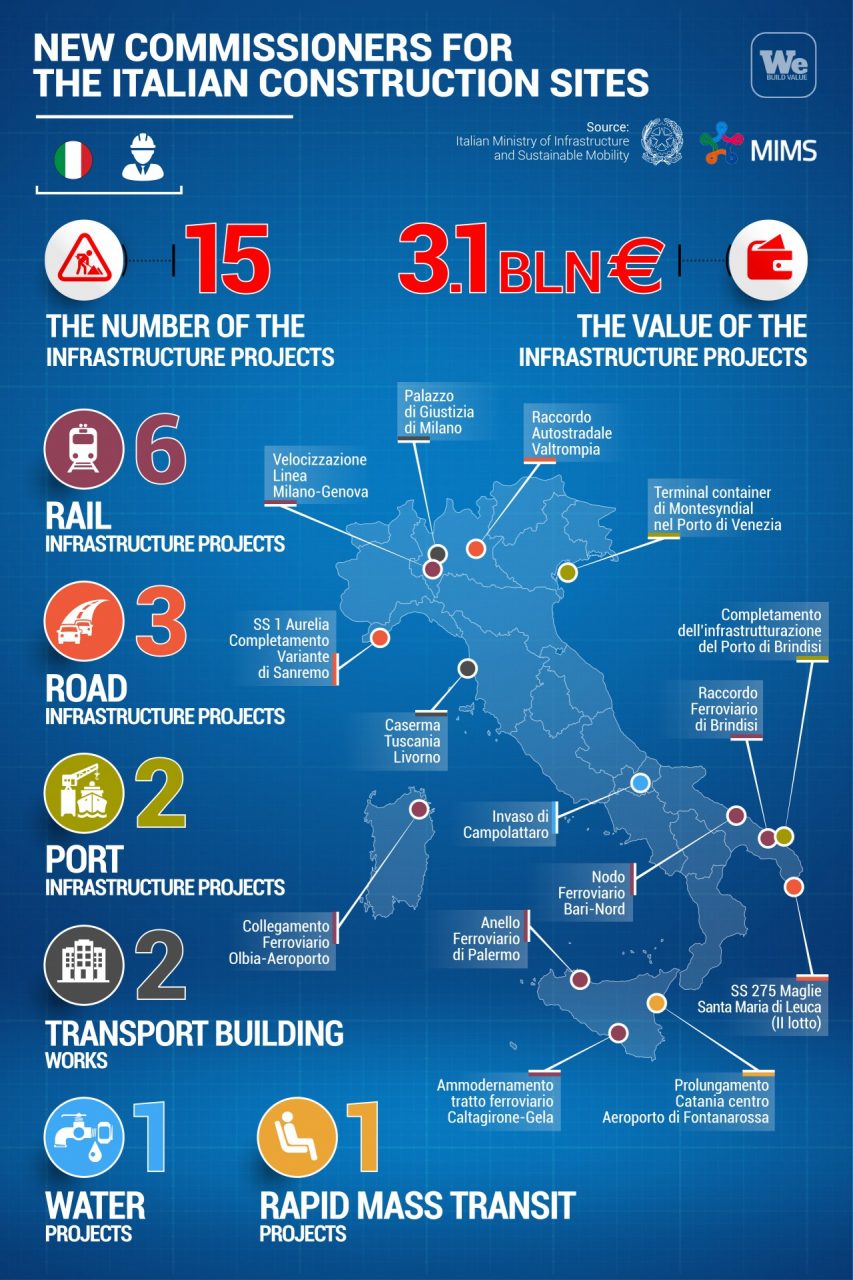Italy is moving full speed ahead on infrastructure investment plans involving a package of major works it sees as strategic for the economic growth of local areas. The government can appoint special commissioners with broader powers to make sure the projects move forward on time, and recently submitted a request to parliament for approval of a list of 15 complex public works to be managed by these special commissioners. Overall, these projects are worth €3.1 billion, and mainly involve road and rail links that are essential to support the evolution towards increasingly widespread sustainable mobility.
According to the plan presented by the Italian government, the designation of the 15 special commissioners should allow for these strategic infrastructures to be completed on schedule.
The new special commissioners for the development of the South
Perhaps the most significant figure in the list of 15 works picked by the Italian government concerns Italy’s underdeveloped south. Over two thirds, or 76.6% (€2.3 billion) of the total value of the projects will be built in southern Italy. The full list submitted by the government to Parliament includes six rail infrastructure projects, three road infrastructures, two port infrastructures, two transport building works, five railway stations, one water project, one port project and one project linked to rapid mass transport, i.e. sustainable urban mobility.
Regarding railway infrastructures, the list includes connecting the southern city of Bari and northern Italy; improvements to increase the speed of the Milan-Genoa line (where Webuild Group is building the Third Valico dei Giovi-Genoa junction); the Olbia-Airport railway link in Sardinia; the modernisation of the railway section between Caltagirone and Gela in Sicily; completing the Palermo railway link and, lastly, the Brindisi rail link.
In Catania, Sicily, the government requested fast-track procedure for the extension of the rapid mass transport line from the city center to Fontanarossa airport. On the road infrastructure front, improvements will be made to the connection between seaside resort Sanremo and the Aurelia highway; and on the Valtrompia expressway link between Verona, Vicenza and Padua.
The plan also provides for building works, such as the renovation of Milan’s fascist-era courthouse.
Special commissioners to accelerate progress at Italian construction sites
It was the tragedy in Genoa, where a bridge collapsed in August 2018, that created the “model” of coordinated action between the public and private sectors that is guaranteed under the aegis of a special commissioner. As a result, the new San Giorgio Bridge replacing the collapsed Morandi Bridge was built in record time.
That construction, carried out by the Webuild Group, has become a paradigm for a new way to build large infrastructures – which is essential in a country like Italy where many construction sites had suffered delays or had even been halted due to red tape. As a response to this problem, the government has singled out 102 strategic works that could benefit from being run by commissioners with special powers. According to the Italian government’s calculations, this strategy resulted in the delivery of 27 works during the second half of 2021. Forecasts indicate that in 2022 will see another 55 deliveries.
Overall, counting also the works that have not been commissioned, 150 projects are expected to be delivered in 2022, 120% more than the 68 deliveries recorded in the years preceding the “era of the special commissioners.”



